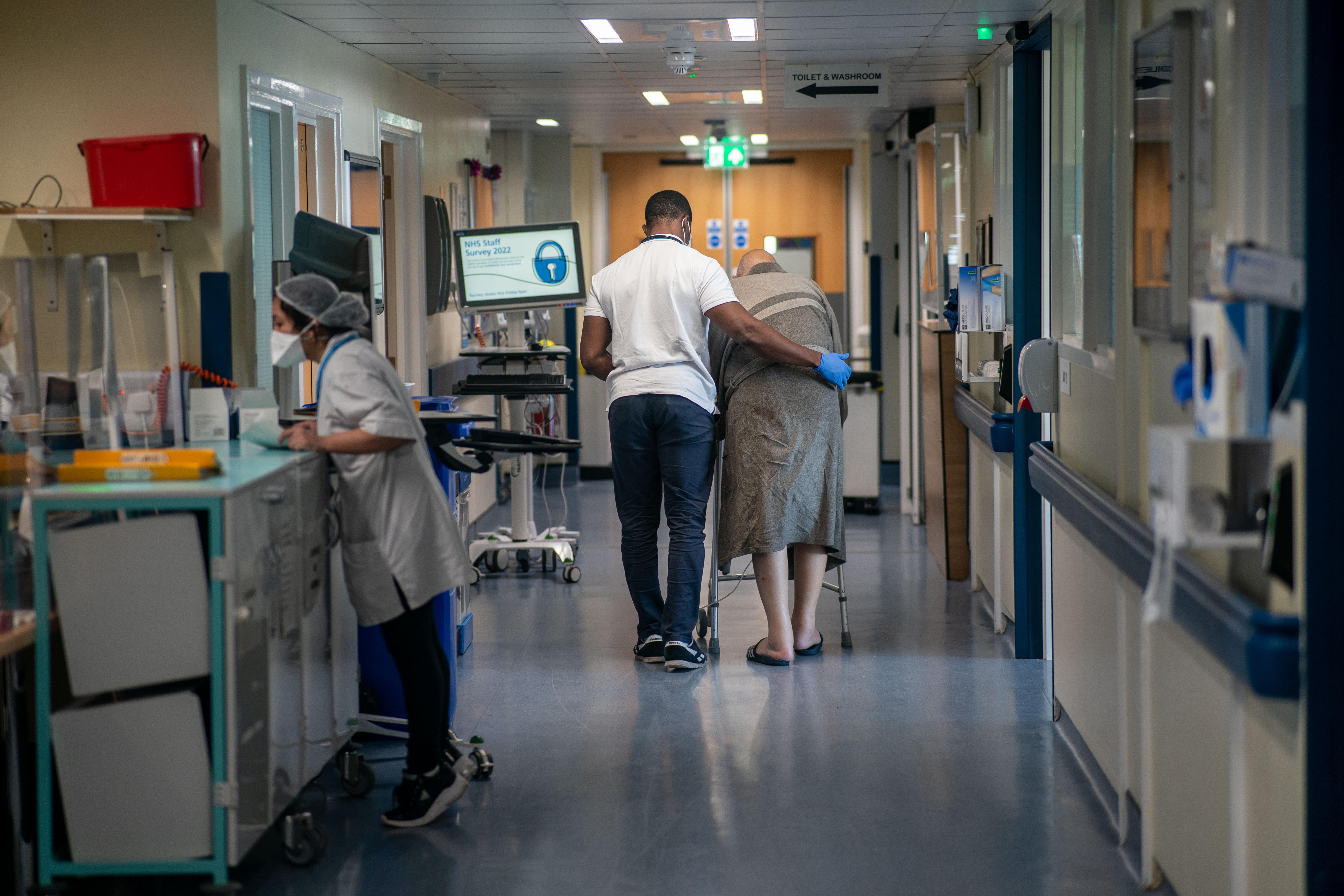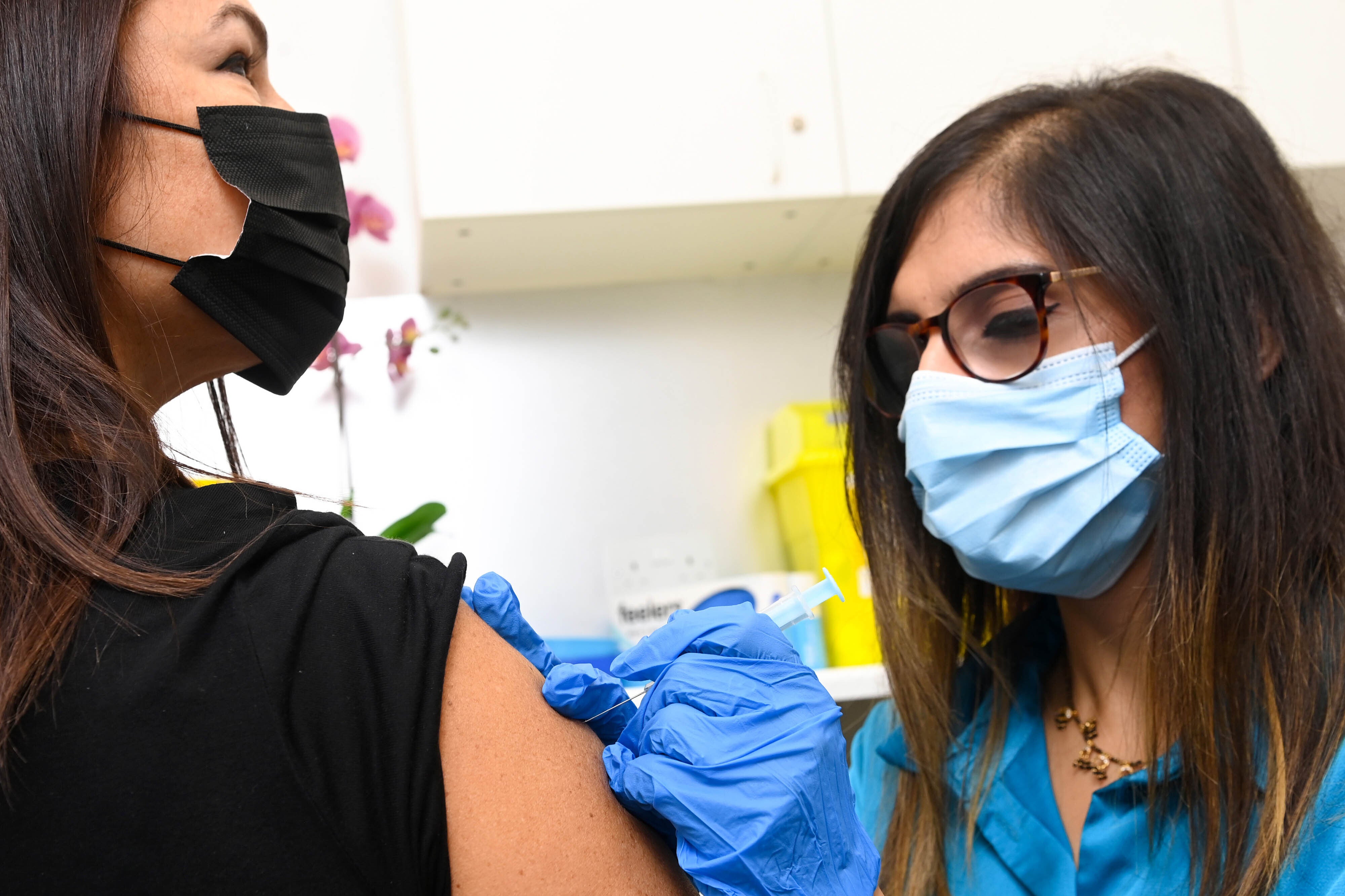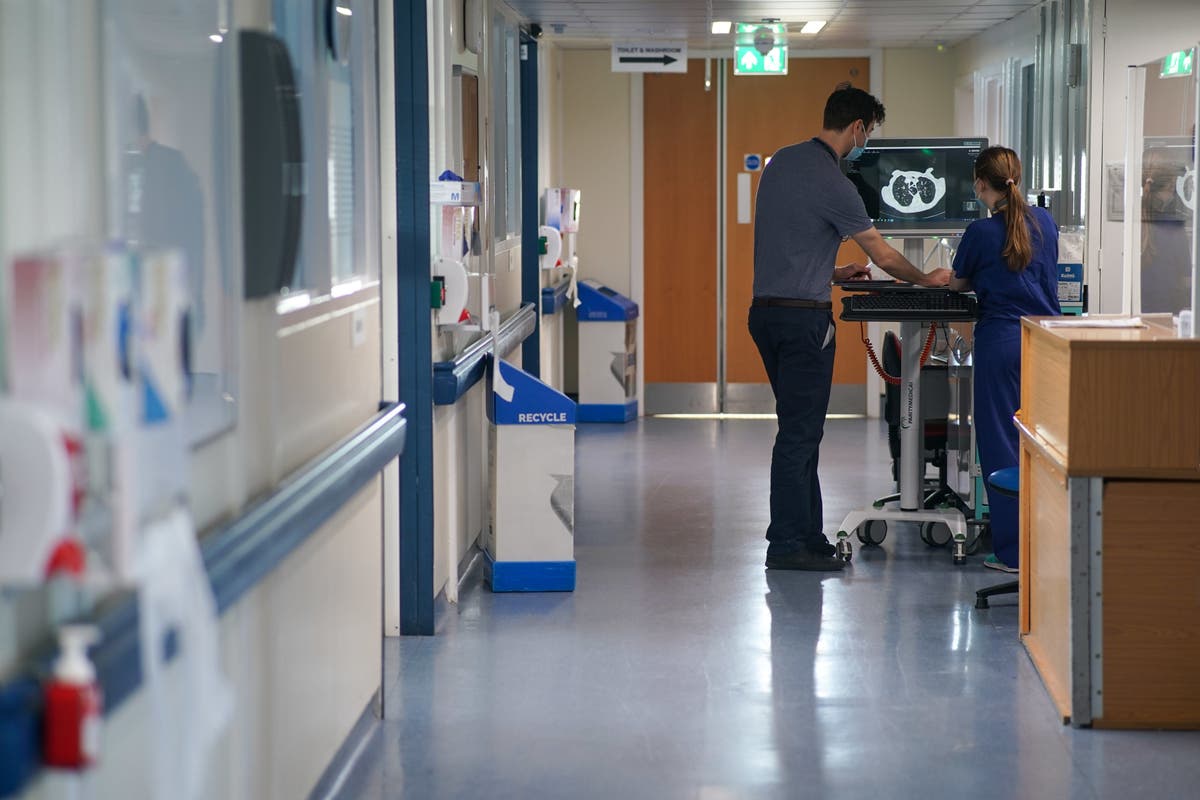Multiple NHS hospitals have reintroduced a requirement to wear face masks in clinical areas as they declared critical incidents due to surging demand and winter viruses.
The number of people being admitted with flu in England has quadrupled in the past month, the latest NHS England figures showed, as several trusts were forced to restrict visiting procedures.
The number of flu patients in hospital beds has hit an average of 4,469 each day over the past week, including 211 in critical care – a total which was also up year-on-year, amid fears that plummeting temperatures this weekend could exacerbate health conditions suffered by the elderly and vulnerable.
Health bosses cited “high levels of demand and winter viruses” as they declared a critical incident at East Surrey Hospital to help ensure it can “continue to deliver safe care to those who need it most”.
Patients whose conditions are not life-threatening were asked to use other services such as NHS 111 online, while some non-urgent operations and treatments would be rescheduled, health chiefs said.
Ed Cetti, chief medical officer at the Surrey and Sussex Healthcare NHS Trust said: “Due to high levels of demand and a sharp increase in winter viruses which is impacting staffing levels and how we move patients around our site, our services are under significant pressure.
“Our staff are working around the clock to minimise disruption to those already on our wards, treat all patients coming into our Emergency Department, and continue to discharge patients who no longer require acute care to ensure we have available beds for those who need admission, but please only attend East Surrey Hospital in a life-threatening emergency.
“If your condition isn’t life-threatening, please utilise other NHS services such as 111 online, your local pharmacy or GP, as well as nearby treatment centres at Crawley, Caterham Dene, Horsham and East Grinstead. This will help ensure emergency care is available to patients who need it most.”

In a bid to curb the spread of winter viruses such as flu and norovirus, visitors to the East Surrey Hospital are also being asked to wash their hands regularly, reduce their movement around the site, and wear masks in clinical areas for the first time this winter.
In Shropshire, the Shrewsbury and Telford Hospital NHS Trust has also reintroduced face mask requirements and visiting restrictions, with the latter move also taken in Mid and South Essex NHS Foundation Trust, Cambridge University Hospitals NHS Foundation Trust and Worcestershire Acute Hospitals NHS Trust.
Paula Gardner, Shrewsbury and Telford’s interim chief nursing officer, said: “Due to the rising numbers of flu, Covid-19 and other winter illnesses, we have made the difficult decision to reduce visiting to essential visitors only, including for critical patients, birthing partners and other select groups.
“This will protect our most vulnerable patients and reduce the rising spread of infections. We are also asking all patients, visitors and staff to wear masks and practise good hand hygiene.
Vowing to keep these measures under regular review and fully reintroduce visiting as soon as possible, she added: “We also urge everyone who is eligible to get their winter vaccinations, as it is not too late and this is the best way to protect yourself and your loved ones.”

They are not the first hospitals to bring in face mask requirements this winter, with hospitals in Lincolnshire doing so in mid-December due to an increase in Covid-19, flu and RSV.
As the latest flu statistics were published, NHS Confederation chief executive Matthew Taylor said that people should be under “no illusions” about the health service being in a position of “national vulnerability” as pressures increase.
He said: “These winter stats bear out what local NHS leaders have been telling us directly in recent days – that the NHS is facing huge demand, from sicker patients, with very high levels of flu to deal with.
“The next two to three weeks will likely be the busiest period of the year for many local services, and we need to acknowledge the strain that this will place on staff and services.”






